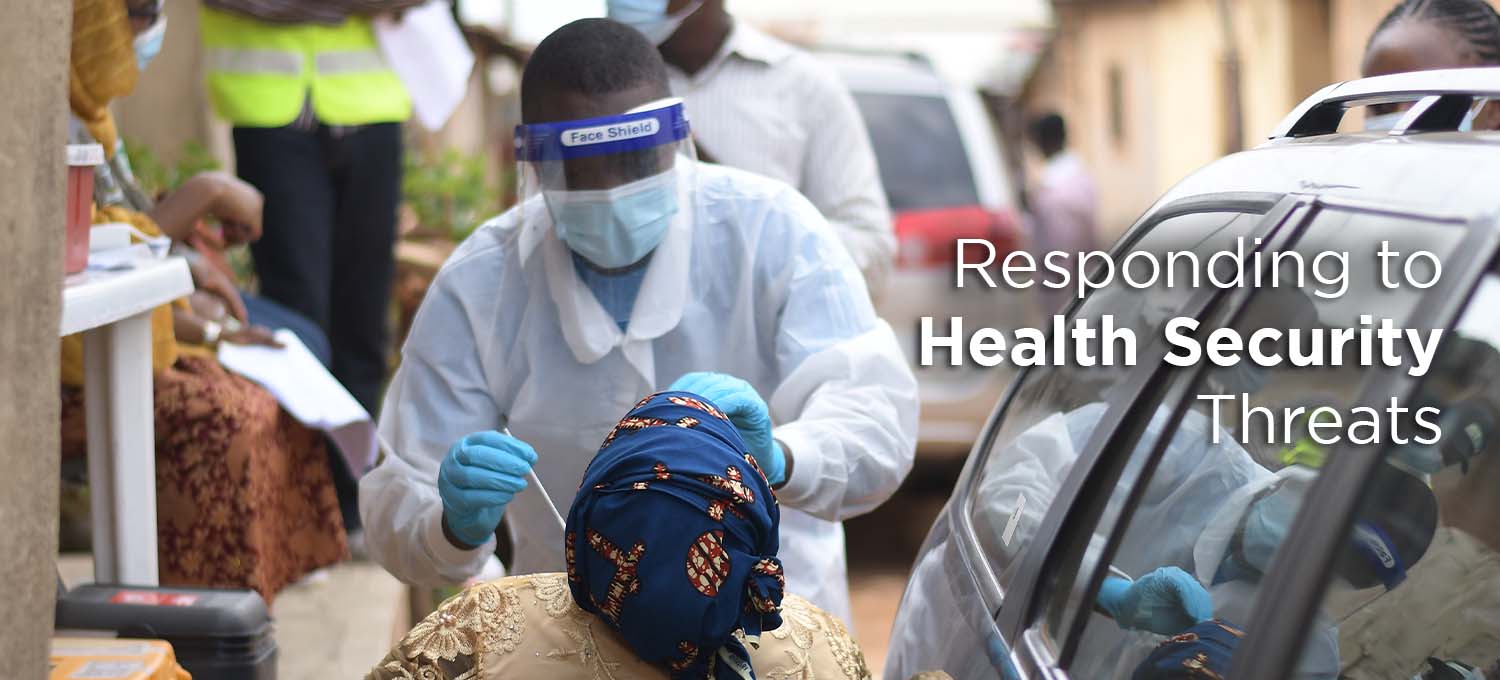Health Security
Countries across the world face biosecurity threats from infectious diseases every day. Threats like HIV/AIDS, tuberculosis, Ebola, SARS-CoV-2, and other diseases create ongoing challenges, not only to a nation’s health, but also its economic and social outlook. A robust global health security system is built on strong public health laboratories, ministries of health, and networks that can prevent, identify, and respond to threats. Since its inception in 2016, Ciheb has been committed to supporting global health security in sub-Saharan Africa, primarily through antimicrobial surveillance, infection prevention, and antimicrobial stewardship.
COVID-19
The COVID-19 pandemic has posed tremendous challenges to low-resource countries on the African continent. Ciheb has played a key role in the frontline response to the pandemic in sub-Saharan Africa. For example, in Nigeria, Ciheb conducted a population-based serosurveillance study to estimate the prevalence of SARS-CoV-2 in communities and the proportion of subclinical infections.
To learn more about Ciheb’s response to COVID-19, please click here.
AMR Surveillance
The University of Maryland, Baltimore (UMB) has conducted regular antimicrobial resistance (AMR) surveillance at its medical center in Baltimore, Maryland for over two decades. In addition, UMB has developed practical clinical guidance for clinicians in the form of comprehensive antimicrobial treatment guidelines and antibiograms. The institutional knowledge of UMB is translated globally through internationally based UMB/Ciheb faculty who maintain ongoing collaborations with U.S.-based faculty and their local faculty colleagues abroad.
Ciheb has established research projects in Lusaka, Zambia and Dar es Salaam, Tanzania. The goal of these projects is to further understand AMR in these countries, contribute to facility level surveillance, determine barriers to regular and accurate surveillance, and advocate for regular surveillance. Researchers developed antibiograms to improve clinician understanding of AMR at their facilities and inform empiric antibiotic selection. The high degrees of resistance led to rethinking how data is presented in antibiograms for use by different practitioners to assist in antibiotic selection.
Antimicrobial Stewardship
Infectious disease medical and pharmacy faculty work in a variety of healthcare facilities in Baltimore and Zambia, where an integral part of the work includes advocating for the appropriate use of antimicrobials through consultations, recommendations, and education. This work leads to antibiotics being stopped sooner, de-escalation to narrow spectrum antibiotics, and ensuring that the most appropriate antibiotic is used to treat an infection.
Ciheb, in collaboration with the UMB School of Pharmacy, assessed antimicrobial use (AMU) at University Teaching Hospital (UTH). This led to a critical appraisal of appropriateness of antibiotic prescribing and a deep understanding of AMU at UTH. UMB is now aiding UTH to develop antibiotic guidelines to direct providers to prescribe more appropriate and directed therapy based on local antibiograms and antibiotic availability.
Infection Prevention and Control
In Lusaka, Zambia, UMB faculty sit on national technical working groups and advise the UTH on infection prevention and control. Ciheb’s involvement was critical during the emergence of the COVID-19 global pandemic, when Ciheb faculty assisted in developing national guidelines for COVID-19 and helped UTH establish COVID-19 screening protocols and obtain locally made personal protective equipment.



